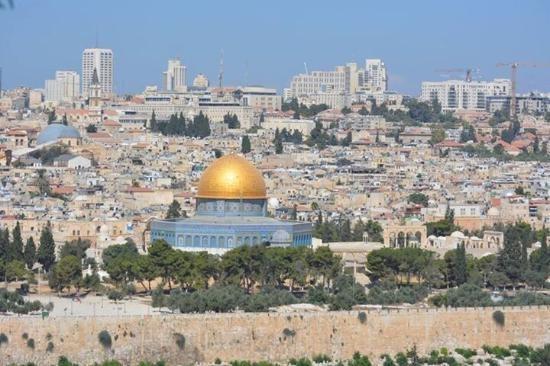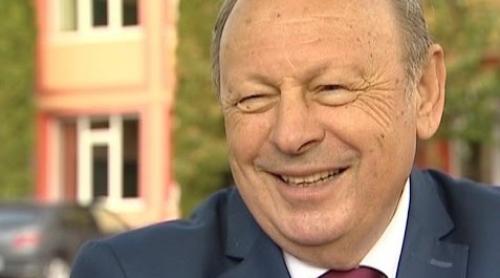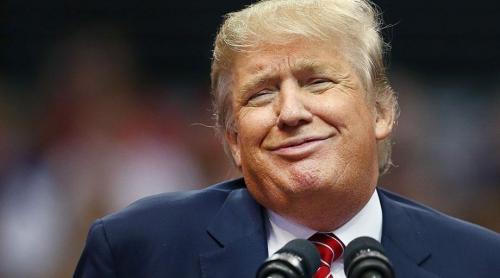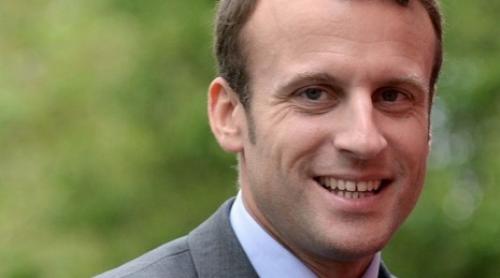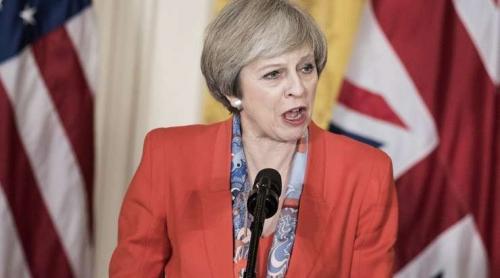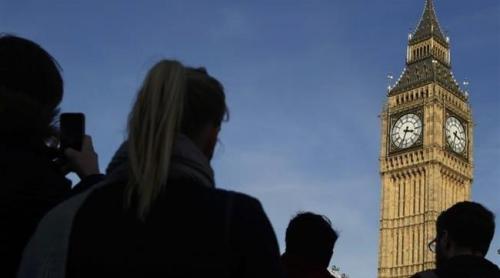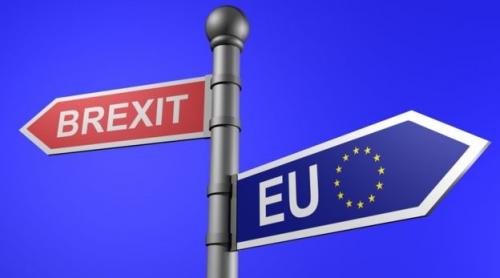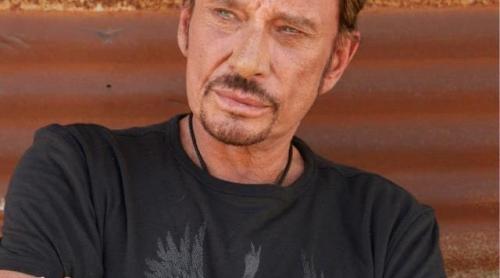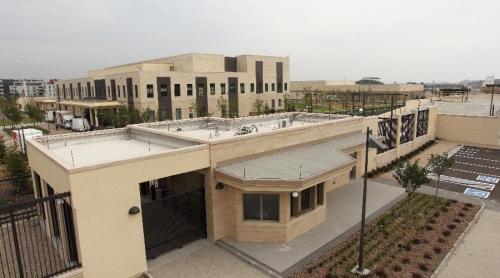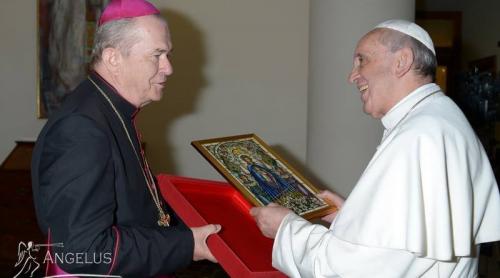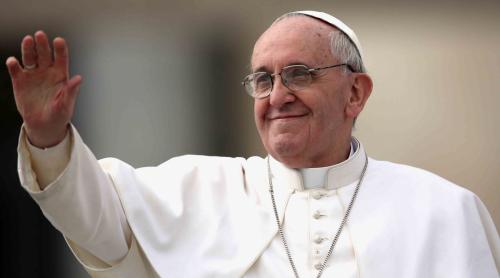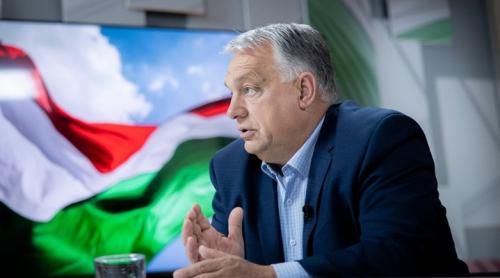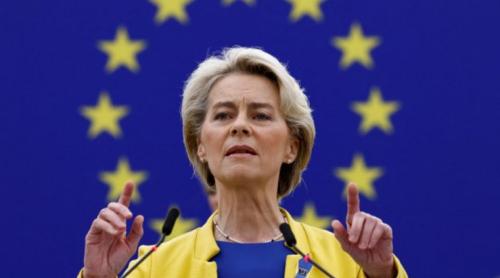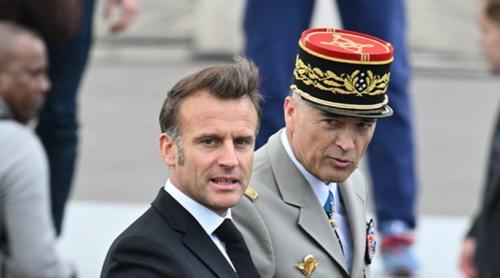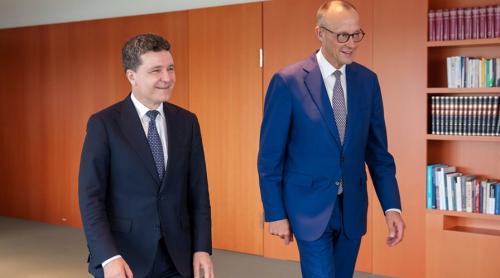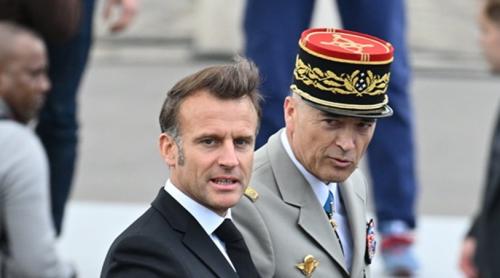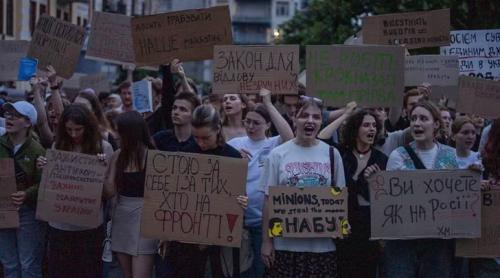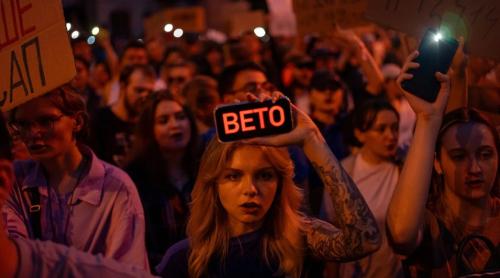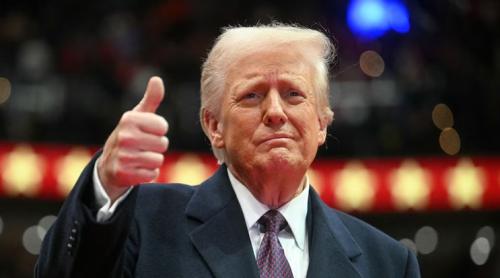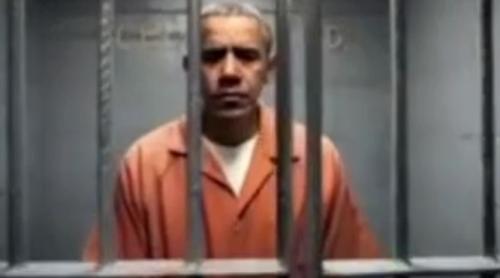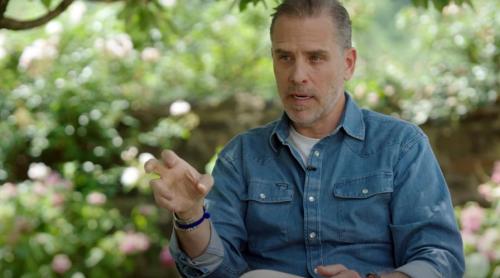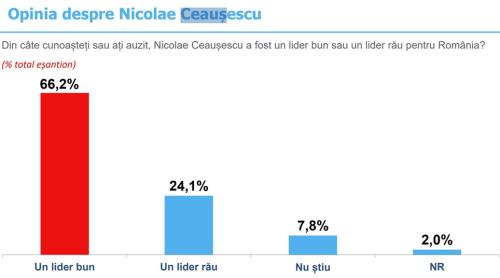Schimbare dramatică de macaz în politica externă americană, și nu numai. Donald Trump intenționează să recunoască, miercuri, Ierusalimul, drept capitală a Israelului, într-un gest complet diferit față de prudența americană în privința acestui dosar. Și chiar în ciuda avertismentelor liderilor din regiune care se tem de o izbucnire a violențelor.
De altfel, forțele de securitate israeliene se pregătesc de ''confruntări'' cu palestinienii în Ierusalimul de Est și Cisiordania înainte de anunțul președintelui american, Donald Trump, relatează agenția Xinhua, preluată de agerpres.ro.
UPDATE
Președintele american Donald Trump a anunțat miercuri că SUA recunosc orașul Ierusalim drept capitală a statului Israel, anunț care marchează o schimbare majoră a politicii Washingtonului în Orientul Mijlociu, relatează agențiile internaționale de presă.
'Am hotărât că este timpul să recunoaștem oficial Ierusalimul drept capitală a Israelului. Deși președinții precedenți au făcut din asta o promisiune majoră în campaniile electorale, ei nu au reușit să se țină de promisiune. Astăzi, eu mă țin'' de acest angajament, a declarat Donald Trump în mesajul transmis din sala de recepții diplomatice a Casei Albe.
''Ierusalimul este centrul guvernului israelian modern, sediul legislativului israelian și al Curții Supreme'', a spus președintele american.
Totodată, Trump a cerut Departamentului de Stat al SUA să înceapă pregătirile pentru a muta ambasada SUA de la Tel Aviv la Ierusalim și a anunțat că vicepreședintele Mike Pence va efectua o vizită în Orientul Mijlociu în următoarele zile.
IATĂ TEXTUL INTEGRAL AL DISCURSULUI ROSTIT DE DONALD TRUMP:
Statement by President Donald Trump
THE PRESIDENT: Thank you. When I came into office, I promised to look at the world’s challenges with open eyes and very fresh thinking. We cannot solve our problems by making the same failed assumptions and repeating the same failed strategies of the past. Old challenges demand new approaches.My announcement today marks the beginning of a new approach to conflict between Israel and the Palestinians.
In 1995, Congress adopted the Jerusalem Embassy Act, urging the federal government to relocate the American embassy to Jerusalem and to recognize that that city — and so importantly — is Israel’s capital. This act passed Congress by an overwhelming bipartisan majority and was reaffirmed by a unanimous vote of the Senate only six months ago.
Yet, for over 20 years, every previous American president has exercised the law’s waiver, refusing to move the U.S. embassy to Jerusalem or to recognize Jerusalem as Israel’s capital city.
Presidents issued these waivers under the belief that delaying the recognition of Jerusalem would advance the cause of peace. Some say they lacked courage, but they made their best judgments based on facts as they understood them at the time. Nevertheless, the record is in. After more than two decades of waivers, we are no closer to a lasting peace agreement between Israel and the Palestinians. It would be folly to assume that repeating the exact same formula would now produce a different or better result.
Therefore, I have determined that it is time to officially recognize Jerusalem as the capital of Israel.
While previous presidents have made this a major campaign promise, they failed to deliver. Today, I am delivering.
I've judged this course of action to be in the best interests of the United States of America and the pursuit of peace between Israel and the Palestinians. This is a long-overdue step to advance the peace process and to work towards a lasting agreement.
Israel is a sovereign nation with the right like every other sovereign nation to determine its own capital. Acknowledging this as a fact is a necessary condition for achieving peace.
It was 70 years ago that the United States, under President Truman, recognized the State of Israel. Ever since then, Israel has made its capital in the city of Jerusalem -- the capital the Jewish people established in ancient times. Today, Jerusalem is the seat of the modern Israeli government. It is the home of the Israeli parliament, the Knesset, as well as the Israeli Supreme Court. It is the location of the official residence of the Prime Minister and the President. It is the headquarters of many government ministries.
For decades, visiting American presidents, secretaries of state, and military leaders have met their Israeli counterparts in Jerusalem, as I did on my trip to Israel earlier this year.
Jerusalem is not just the heart of three great religions, but it is now also the heart of one of the most successful democracies in the world. Over the past seven decades, the Israeli people have built a country where Jews, Muslims, and Christians, and people of all faiths are free to live and worship according to their conscience and according to their beliefs.
Jerusalem is today, and must remain, a place where Jews pray at the Western Wall, where Christians walk the Stations of the Cross, and where Muslims worship at Al-Aqsa Mosque.
However, through all of these years, presidents representing the United States have declined to officially recognize Jerusalem as Israel’s capital. In fact, we have declined to acknowledge any Israeli capital at all.
But today, we finally acknowledge the obvious: that Jerusalem is Israel’s capital. This is nothing more, or less, than a recognition of reality. It is also the right thing to do. It's something that has to be done.
That is why, consistent with the Jerusalem Embassy Act, I am also directing the State Department to begin preparation to move the American embassy from Tel Aviv to Jerusalem. This will immediately begin the process of hiring architects, engineers, and planners, so that a new embassy, when completed, will be a magnificent tribute to peace.
In making these announcements, I also want to make one point very clear: This decision is not intended, in any way, to reflect a departure from our strong commitment to facilitate a lasting peace agreement. We want an agreement that is a great deal for the Israelis and a great deal for the Palestinians. We are not taking a position of any final status issues, including the specific boundaries of the Israeli sovereignty in Jerusalem, or the resolution of contested borders. Those questions are up to the parties involved.
The United States remains deeply committed to helping facilitate a peace agreement that is acceptable to both sides. I intend to do everything in my power to help forge such an agreement. Without question, Jerusalem is one of the most sensitive issues in those talks. The United States would support a two-state solution if agreed to by both sides.
In the meantime, I call on all parties to maintain the status quo at Jerusalem's holy sites, including the Temple Mount, also known as Haram al-Sharif.
Above all, our greatest hope is for peace, the universal yearning in every human soul. With today’s action, I reaffirm my administration’s longstanding commitment to a future of peace and security for the region.
There will, of course, be disagreement and dissent regarding this announcement. But we are confident that ultimately, as we work through these disagreements, we will arrive at a peace aa place far greater in understanding and cooperation.
This sacred city should call forth the best in humanity, lifting our sights to what it is possible; not pulling us back and down to the old fights that have become so totally predictable. Peace is never beyond the grasp of those willing to reach.
So today, we call for calm, for moderation, and for the voices of tolerance to prevail over the purveyors of hate. Our children should inherit our love, not our conflicts.
I repeat the message I delivered at the historic and extraordinary summit in Saudi Arabia earlier this year: The Middle East is a region rich with culture, spirit, and history. Its people are brilliant, proud, and diverse, vibrant and strong. But the incredible future awaiting this region is held at bay by bloodshed, ignorance, and terror.
Vice President Pence will travel to the region in the coming days to reaffirm our commitment to work with partners throughout the Middle East to defeat radicalism that threatens the hopes and dreams of future generations.
It is time for the many who desire peace to expel the extremists from their midst. It is time for all civilized nations, and people, to respond to disagreement with reasoned debate –- not violence.
And it is time for young and moderate voices all across the Middle East to claim for themselves a bright and beautiful future.
So today, let us rededicate ourselves to a path of mutual understanding and respect. Let us rethink old assumptions and open our hearts and minds to possible and possibilities. And finally, I ask the leaders of the region -- political and religious; Israeli and Palestinian; Jewish and Christian and Muslim -- to join us in the noble quest for lasting peace.
Thank you. God bless you. God bless Israel. God bless the Palestinians. And God bless the United States. Thank you very much. Thank you.
(The proclamation is signed.)
-----------------
Orice recunoaștere a Ierusalimului drept capitală a Israelului este un "casus belli" pentru liderii palestinieni, care consideră că Ierusalimul de Est, anexat de Israel în 1967, trebuie să fie capitala statului la care ei aspiră.
Națiunile Unite, China și Marea Britanie (principalul aliat al SUA, de altfel), ambele membre permanente ale Consiliului de Securitate ONU, și-au alăturat vocile în concertul de îngrijorări exprimate în ultimele zile în privința acestui subiect.
Premierul Marii Britanii, Theresa May, nu este de acord cu decizia lui Trump, fiind de părere că Ierusalimul ar trebui să fie împărțit, și intenționează să discute cu președintele american pe această temă, scrie cotidianul israelian Haaretz.
Șeful diplomației britanice, Boris Johnson, a exprimat preocuparea britanică, afirmând și el că statutul Ierusalimului ar trebui să facă obiectul unei soluții negociate și a declarat că Londra nu are nicio intenție să urmeze Washington-ul pe această cale.
”La 6 decembrie 2017, președintele Trump va recunoaște Ierusalimul drept capitală a Israelului”, a declarat un reprezentant al Administrației SUA, scoțând în relief ”recunoașterea unei realități” atât istorice cât și contemporane.
Liderul de la Casa Albă va ordona totodată pregătirea transferului ambasadei Statelor Unite de la Tel Aviv la Ierusalim. El nu va fixa totuși calendarul acestei mutări care ar urma să dureze "ani", odată cu necesitatea de a găsi o locație, de a finanța și a construi un nou sediu.
"Președintele își ține o promisiune centrală a campaniei sale, promisiune care a fost făcută de numeroși candidați la președinție", a indicat acest oficial american, care a dorit să își păstreze anonimatul, scrie la-croix.com.
Un oficial militar a declarat pentru media locale că armata israeliană este ''pregătită pentru o posibilă escaladare'', inclusiv proteste violente.
În cursul nopții de marți spre miercuri, în orașul Betleem au fost arse postere cu Trump în timpul unui miting care a început după ce oficialul Casei Albe a confirmat că președintele american va recunoaște miercuri Ierusalimul drept capitala Israelului.
Ierusalimul este un loc sfânt atât pentru musulmani cât și pentru evrei. În Orașul Vechi al Ierusalimului de Est se află esplanada Moscheii Al-Aqsa, cunoscută pentru musulmani ca Haram Al-Sharif (''Sanctuarul Nobil'') și pentru evrei drept Muntele Templului. Complexul religios este în custodia Iordaniei.
În cursul unui dialog telefonic marți, președintele palestinian, Mahmud Abbas, l-a avertizat pe Donald Trump asupra "consecințelor periculoase ale unei asemenea decizii asupra procesului de pace, securității și stabilității în regiune și în lume".
Apelurile împotriva unei astfel de decizii cu consecințe imprevizibile au venit în cascadă în cursul ultimelor 24 de ore.
Regele Salman al Arabiei Saudite a avertizat Washingtonul că o asemenea decizie riscă să provoace "mânia musulmanilor". "Este un pas periculos", a spus regele saudit, potrivit televiziunii de stat al-Ekhbariya.
Iordania, custodele locurilor sfinte musulmane de la Ierusalim, a pus în gardă față de "un demers cu consecințe grave" și față de riscurile de "escaladare" a situației.
În Europa, președintele francez, Emmanuel Macron, și-a exprimat "preocuparea". "Tot ceea ce contribuie la stimularea crizei este contraproductiv în acest moment", a apreciat și ministrul german de Externe, Sigmar Gabriel.
Până și Papa Francisc a cerut miercuri ca ”status quo”-ul în privința Ierusalimului să fie respectat, afirmând că posibilele noi tensiuni în Orientul Mijlociu ar inflama și alte conflicte la nivel mondial, scrie Reuters.
Premierul israelian Benjamin Netanyahu a afirmat miercuri că ''identitatea istorică și națională'' a Israelului este recunoscută, făcând referire la așteptata decizie a președintelui american Donald Trump de a recunoaște oficial Ierusalimul drept capitală a Israelului. "Identitatea noastră istorică și națională are parte de recunoașteri importante în fiecare zi, dar în mod special astăzi", a spus Netanyahu.
IMAGINI LIVE DIN IERUSALIM, pe site-ul miscareaderezistenta.ro. CLICK AICI.
